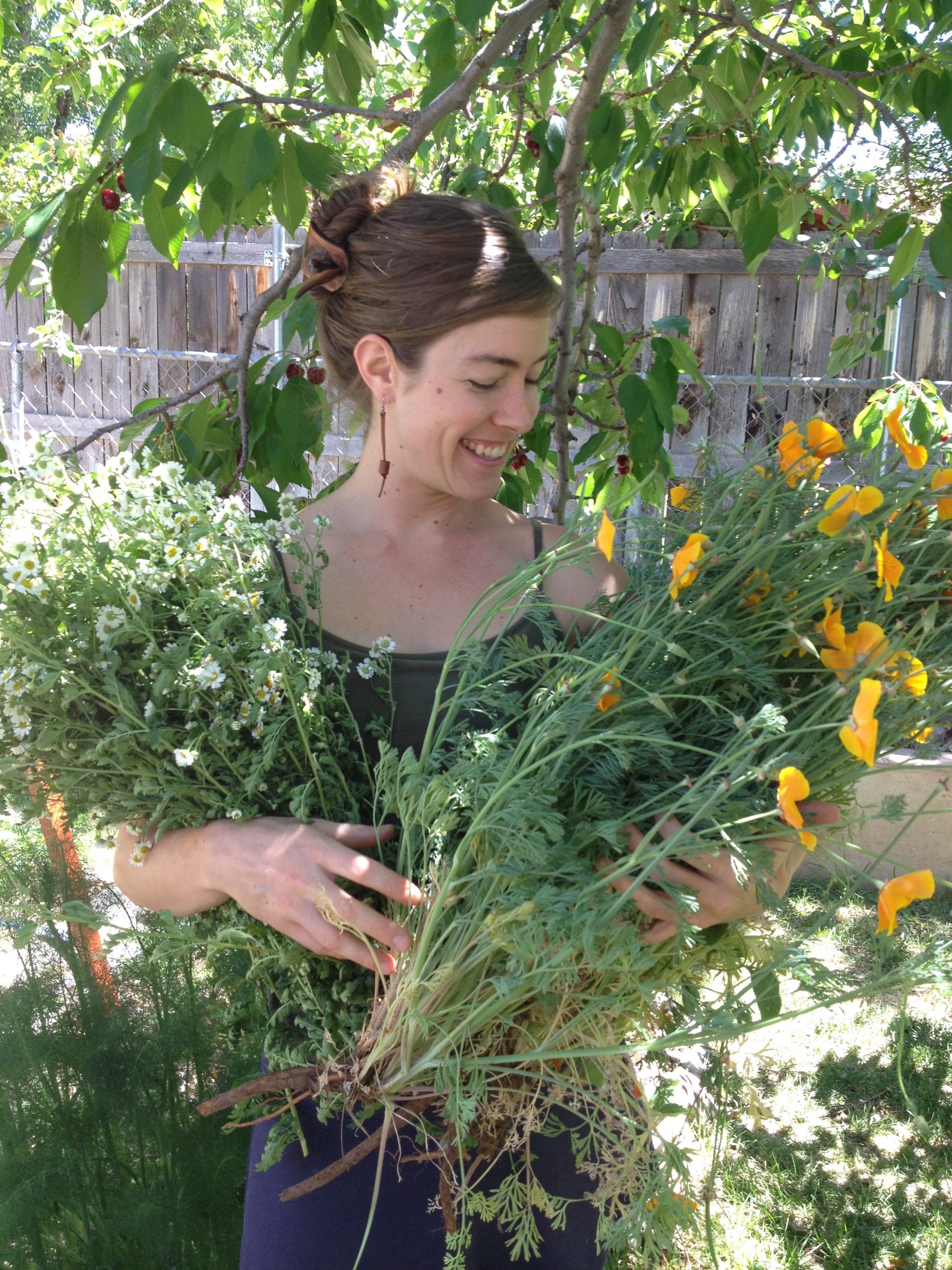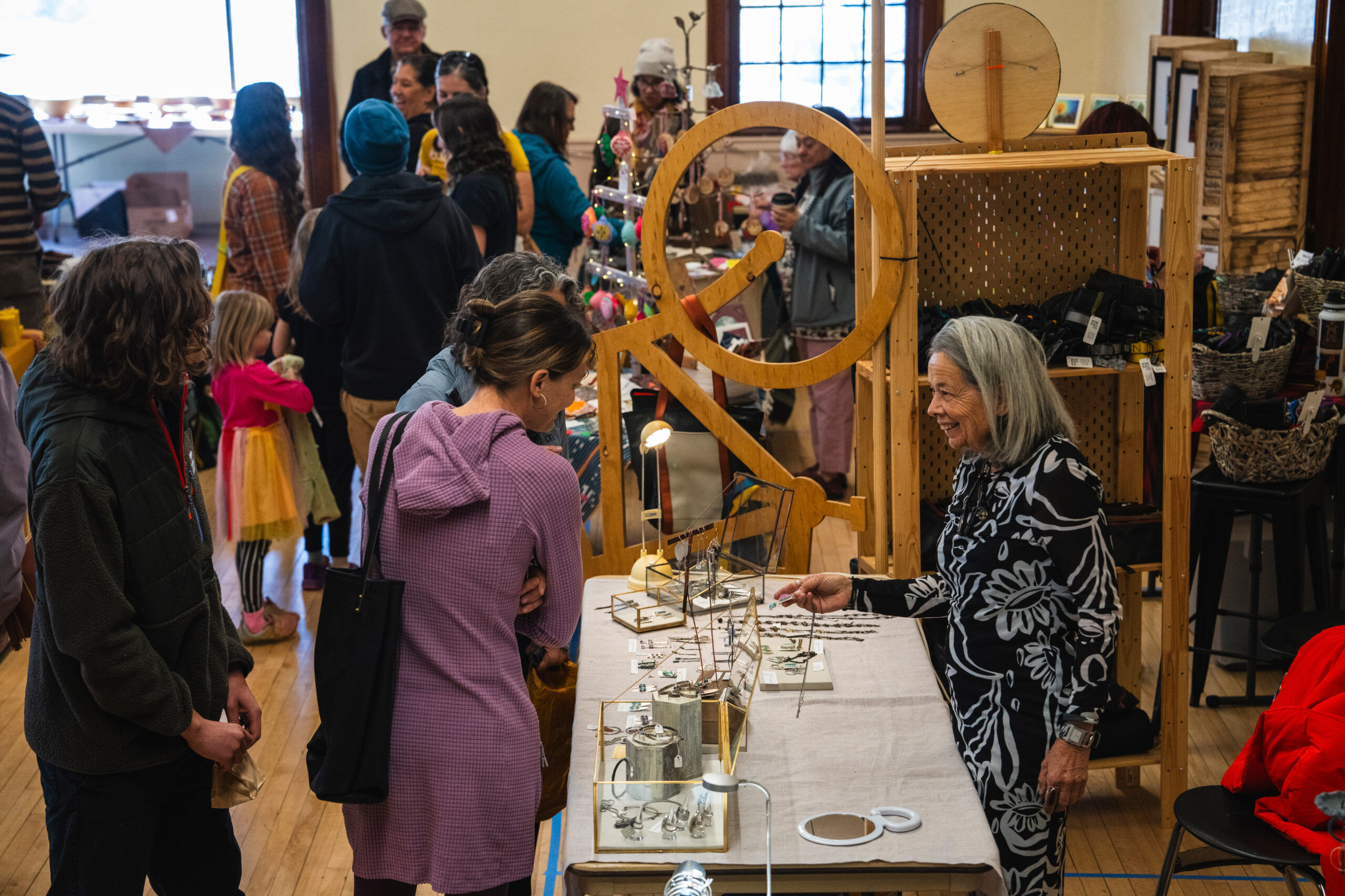Some information may be outdated.
This local business column is made possible with the support of the Grand County Economic Development Department, which strives to create a diverse economy, support local businesses, and improve the quality of life for Grand County’s current and future residents.
The concept for the apothecary started on Sundial Drive, and the name stuck. Emily Stock, owner and founder of Sundial Medicinals, has allowed the idea to evolve organically since 2011 as she expanded offerings for herbal remedies to friends, family and the community. Specializing in organic teas, tonics, and tinctures, Sundial Medicinals has been at 550 N. Main St. for eight years, and now offers over 200 products in addition to seeing clients in a clinical setting for traditional herbal therapeutic consultations.
“We had a farmers market selling fresh vegetables. I started selling tinctures there to start paying for the overhead,” Stock said of the humble origins of the company. Since then, it’s grown into a brick and mortar business with three employees. Their mission is to inspire individuals to use herbal medicine for the ailments and imbalances of life.
“My goal is a lifestyle goal—to support my lifestyle as an herbalist, gardening, bringing stuff in from the garden, being able to raise my kids and be self-sufficient,” Stock said. Having an organizational brain has allowed her to track and manage the progress of the business as it grows and expands.
“I try to keep things as affordable as possible,” Stock said. However, she noted the increase in herb prices—likely caused by “good things” such as livable wages for farmers, and also inflation, in addition to increased rent at their current location have made that hard.
The store is open from Monday to Thursday from 10 a.m. to 2 p.m., where customers can browse the products and take advantage of a big perk: the ability to refill bottles. A 4oz bottle is more economical and can be refilled with a discount.
“We love being here for our intentional traffic,” she said of their business hours and location as they are not on the walking section of mainstreet to attract many walk-ins.
But whole-sale is a large portion of the business—they ship all over the country from Ridgway, CO to Pennsylvania and much of employees’ time at the shop is spent preparing products.
Stock melds her education in western herbalism with traditional Chinese medicine in her work.
“My passion is to use traditional Chinese medicine diagnostics, getting herbs I can grow myself, and use this in my consultation with my clients,” Stock said.
It’s this passion that motivates her to share her product and her knowledge with the community.
“We don’t want to be the gatekeepers of medicine,” she said. “We want to be able to engage people in their own sense of wellness and self to use the medicines they can get for themselves. It’s a philosophy of empowerment.”
Stock’s education started with self-study from an angle of ecology and gardening, traditional Chinese medicine, and Taoist philosophy. Then, she worked at Herb Pharm in Oregon as an intern in 2010. She studied at the East West School of Planetary Herbology with Michael Tierra—a four year program. In the age of the internet, she urges caution in selecting an herbalist, as people can teach themselves, gleaning potentially false information.
“Make sure you can trust your herbalist. Make sure the medicine is made in a way that is functional for the herbs,” she said.
An example of the importance of understanding the medicine-making process is the California poppy: the dried herb is inert, yet a fresh herb will deliver its medicinal properties. Mushrooms must undergo a process of boiling to fully extract their medicines and make them fully available.
Stock’s herbal formulas are intended to balance body systems and create harmony with form, function, and spirit of the person as a whole, according to the Sundial Medicinal website.
Continuing education is important to Stock, whether in person at conferences, or studying the case-studies of other practitioners. The field relies mostly on tradition, empiricism (the theory that knowledge is derived from sensory experiences), and science—though the science is limited by funding. However, the use of herbal products for some part of primary health care has been increasing in the last three decades with up to 80% of people worldwide reporting use of medicinal herbs, according to a study found in the National Institute of Health’s National Library of Medicine.
“It’s gaining relevance,” Stock said. “People are using more and more botanical medicines.”
Thus, the business operates within the larger landscape of what Stock called “the movement,” and similar herbal medicine businesses in town—such as Wise Raven Herbs, SisterRoot Medicinals, and Adobe Gardens Apothecary—are all supporting this development in the market.
“The more people that use herbs, the more people that use herbs,” Stock said. “We are part of the movement of people using accessible, safe plant medicines.”
However, she described Sundial Medicinal services as unique in offering consultations with traditional herbal medicines that complement a client’s health journey. Feedback on the formulas that “did the trick” are the biggest rewards for Stock.
“I love it when the body needs a nudge and the herbs did just that,” she says of a patient’s experience.
Visit Sundial Medicinals at 550 N Main Street or find their products at Moonflower Coop. Also look for occasional workshops and classes held throughout the year at Moonflower and Youth Garden Project.
Appreciate the coverage? Help keep local news alive.
Chip in to support the Moab Sun News.





